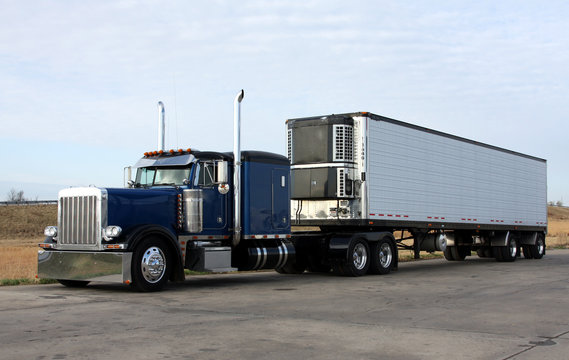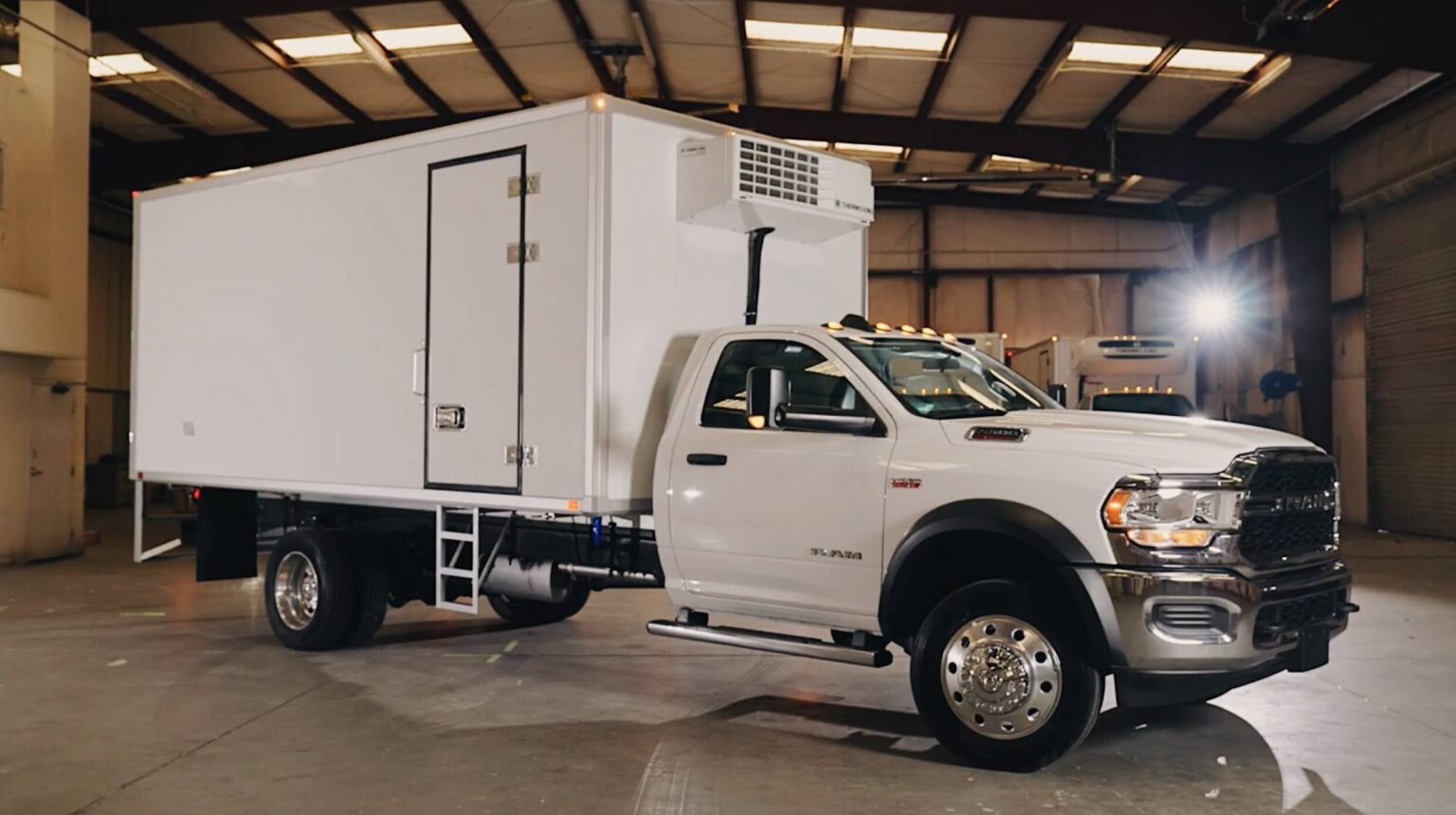Thermo King Transport Refrigeration: High Quality Air Conditioning for Cargo
Thermo King Transport Refrigeration: High Quality Air Conditioning for Cargo
Blog Article
Leading Advancements in Transport Refrigeration: Enhancing Effectiveness and Safety
The landscape of transportation refrigeration is going through considerable makeover, driven by innovations aimed at boosting both efficiency and security. As these innovations continue to progress, it is essential to explore their effects on operational practices and regulative conformity, prompting a better assessment of just how they reshape the future of transport refrigeration.
Smart Temperature Monitoring Systems
In the realm of transportation refrigeration, clever temperature level monitoring systems have emerged as an important technology for guaranteeing the stability of temperature-sensitive products. These innovative systems utilize Net of Points (IoT) technology to offer real-time data on temperature changes, allowing drivers to preserve ideal problems throughout the supply chain. By constantly tracking the temperature level of cooled containers and lorries, firms can promptly recognize inconsistencies that might compromise item top quality.

Moreover, smart tracking systems frequently include automated notifies and alerts, enabling stakeholders to respond immediately to any kind of prospective concerns. This proactive approach not only lessens the risk of wasting yet also improves conformity with regulatory requirements controling food safety and pharmaceutical transportation.
The assimilation of data analytics within these systems additionally assists in predictive maintenance, helping operators to visualize possible equipment failures prior to they occur. This ability lowers downtime and enhances functional performance, ultimately resulting in cost financial savings.
Eco-Friendly Refrigerants
Smart temperature monitoring systems play a crucial role in keeping product high quality, but the efficiency of transport refrigeration likewise depends upon the option of cooling agents used. As ecological concerns increase, the change towards eco-friendly refrigerants has actually become critical. Conventional cooling agents, such as hydrofluorocarbons (HFCs), are notorious for their high Worldwide Warming Possible (GWP), contributing considerably to environment change. In contrast, arising choices like hydrocarbon-based refrigerants and hydrofluoroolefins (HFOs) present lower GWP alternatives, offering both efficiency and sustainability.
These environmentally friendly cooling agents not just decrease ecological impact but also align with worldwide guidelines intended at terminating harmful compounds. Their adoption can cause enhanced energy performance, inevitably minimizing operating prices for transportation refrigeration systems. Moreover, the use of all-natural cooling agents, such as ammonia and co2, has actually obtained grip because of their exceptional thermodynamic properties and lower ecological impact.
Buying eco-friendly cooling agents is not just a regulative compliance action; it stands for a tactical decision that boosts brand name credibility and fosters consumer loyalty. thermo king truck refrigeration units. By focusing on lasting practices, companies can add to a greener future while guaranteeing the integrity of moved products
Advanced Insulation Materials
Making use of sophisticated insulation products is vital for optimizing transportation refrigeration systems, as they considerably enhance power efficiency and preserve consistent temperature control. Traditional insulation techniques often drop short in stopping thermal transfer, resulting in enhanced power usage and fluctuating temperature levels within refrigerated areas.
Emerging products such as vacuum shielded panels (VIPs) and aerogels provide premium thermal resistance, enabling thinner accounts without compromising performance. VIPs, for circumstances, utilize a vacuum cleaner layer to minimize convective and conductive heat transfer, making them excellent for space-constrained applications. Aerogels, known for their permeable and lightweight framework, provide remarkable insulation while dramatically reducing total system weight.
Furthermore, integrating phase adjustment materials (PCMs) into insulation systems can even more support temperature levels throughout transportation. These products absorb and release thermal energy, efficiently buffering against outside temperature level variants.
The assimilation of these innovative insulation materials not only reduces the operational costs related to power usage however likewise prolongs the life span of temperature-sensitive items. As the transportation refrigeration market remains to progress, the fostering of cutting-edge insulation modern technologies will certainly be essential in improving both effectiveness and Recommended Site security in cooled transport.
Automated Route Optimization
The efficiency of transportation refrigeration systems is greatly boosted via automated course optimization, which leverages real-time information and innovative formulas to identify the most reliable courses for shipment. By evaluating various variables such as website traffic patterns, weather condition conditions, and delivery home windows, these systems can substantially minimize travel time and gas usage.
Automated route optimization minimizes human mistake and subjective decision-making, which can result in inefficiencies. This modern technology allows fleet managers to allot resources better, making sure that refrigerated items preserve their called for temperature level throughout the journey. By maximizing routes, firms can likewise boost client complete satisfaction via prompt distributions.
In addition, automated systems can adapt to unexpected circumstances, such as road closures or abrupt web traffic spikes, enabling vibrant rerouting. This flexibility not only safeguards the honesty of temperature-sensitive products however also adds to total functional efficiency.
Applying automated route optimization can lead to blog significant cost savings while minimizing the carbon footprint connected with transportation. As services increasingly prioritize sustainability, this technology sticks out as an important part in modern-day transportation refrigeration, lining up functional objectives with ecological responsibility. Ultimately, automated path optimization stands for a substantial advancement in the mission for effectiveness and safety and security in transportation refrigeration.

Real-Time Information Analytics
Automated path optimization considerably benefits from the assimilation of real-time data analytics, which provides essential insights into the efficiency of transport refrigeration systems. By making use of real-time information, transport drivers can keep track of temperature level variations and equipment efficiency, guaranteeing that perishable items are maintained within called for specifications throughout transportation. This positive approach not just enhances the high quality of the transferred items but additionally mitigates the threat of spoilage and loss.

Along great post to read with boosting performance, real-time analytics boosts safety by making sure compliance with regulatory criteria for temperature level control. This not just safeguards public health and wellness but also strengthens a business's track record - thermo king truck refrigeration units. As the transport refrigeration sector progresses, the integration of real-time information analytics arises as a cornerstone for driving technology, sustainability, and functional quality
Verdict
In conclusion, the improvements in transportation refrigeration considerably improve both performance and safety and security within the industry. Collectively, these developments represent an important advancement in transportation refrigeration, ensuring compliance with regulatory standards and advertising a greener future.
The landscape of transport refrigeration is going through considerable improvement, driven by advancements intended at improving both performance and safety and security.Smart temperature level surveillance systems play an essential duty in keeping item high quality, however the efficiency of transport refrigeration likewise hinges on the choice of refrigerants made use of. Their fostering can lead to boosted power effectiveness, eventually decreasing operating costs for transport refrigeration systems. Inevitably, automated course optimization stands for a considerable development in the quest for efficiency and safety and security in transportation refrigeration.
In final thought, the developments in transport refrigeration dramatically improve both effectiveness and safety within the sector.
Report this page